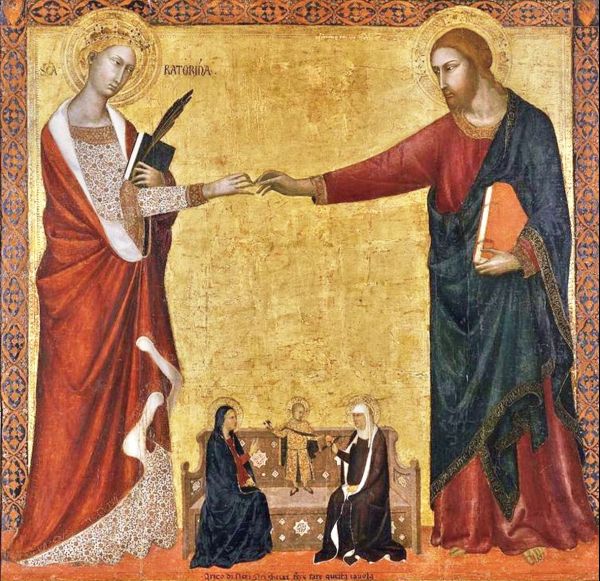Jesus [who also attributes great value to signs and performs them to lead one to believe, revealing his glory] reproaches the king's official with immature faith, too attached to miracles.
Francis considered it the test of his witness, seeing in it the secret of knowing how to live human affairs - once one is 'instructed' by the Passion of the Son of God.
The Minim saw in the poor and sick the Christ who took on our infirmities and healed them.
An episode from the Sources, taken from the Major Legend, tells us:
"A pilgrim, debilitated by a very acute fever, which had previously struck him, was returning from overseas on board a ship [...].
Since he was not yet perfectly free of the fever, he felt tormented by a burning thirst.
Although, by now, there was no more water, he began to shout aloud:
"Go with confidence and fetch me a drink, for blessed Francis has filled my keg with water!".
A truly wonderful thing: they found the vessel they had previously left empty filled with water" (FF 1284).
One day the father said to a friar who had despised a poor and sick man:
"Shall I tell you how you have sinned against him, or rather against Christ?
Behold: when you see a poor man, you must consider him in whose name he comes, that is, Christ, who became man to take our poverty and infirmity. In the poverty and infirmity of this beggar we must lovingly discern the poverty and infirmity of our Lord Jesus Christ, which he bore in his body for the salvation of the human race' (FF 1645).
The Poverello also healed many people afflicted with fever and various ills,
but emphasised what he saw beyond the albeit important sign.
He always called his brothers to a solid, granitic faith.
He spoke to them of that, expressing it in a discipleship adhesion that went beyond the immediate and rested on union with Christ.
We well understand the prayer he uttered before the Crucifix of San Damiano, in which, addressing God, he said:
"dame fede dricta" [give me certain faith] (FF 276).
The Word ruminated and lived by the Poverello increased day by day our trust in the Lord, who has plans for us of Peace and not of misfortune.
Clare too, abandoned to Christ, healed a sister with the sign of the cross.
Not the signs, but the Sign changes the life, the history of every creature.
"Another of the sisters, named Amata, had been in bed suffering from dropsy for thirteen months and had a fever, a cough and sickness on one side.
On her Donna Chiara, moved by pity, resorted to that noble system of her medical art.
She marked her with the cross in the name of her Christ and immediately restored her to full health" (FF 3223).
This is the faith that sinks into the incarnate Word and transforms the path, rests on Christ who died and rose again for all, and is a sure beacon in the night.
«Unless you see signs and wonders, you do not believe» (Jn 4:48)
Monday 4th wk. in Lent (Jn 4:43-54)












